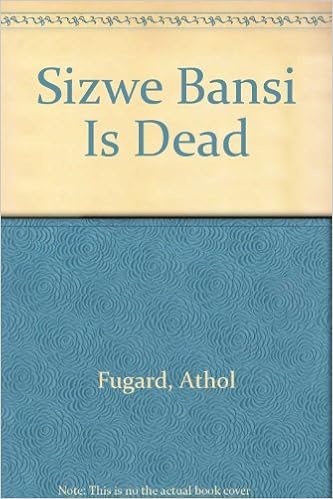To do this, I discuss Athol Fugard, John Kani, and Winston Ntshona’s The Island (1973) and J.M. Coetzee’s Foe (1986), both of which thematize South African economic and moral isolation through. Athol Fugard is one of the most respected and frequently studied of living dramatists. Working in active collaboration with the people of the South African townships, his plays are informed and powerful portraits of the black urban experience. The Island The man who greeted them was Petros Kontomaris, the island leader. He had been voted in, along with a group of elders, by the three hundred or so inhabitants in the annual election; Spinalonga was a model of democracy and the regularity of the elections was intended to ensure that dissatisfaction never festered. Athol Fugard is an internationally acclaimed South African playwright whose best-known work deals with the political and social upheaval of the apartheid system in South Africa. He was educated at the University of Cape Town. His plays include The Captain's Tiger, Valley Song, My Children! My Africa, A Lesson from Aloe. View full profile. Sizwe Bansi Is Dead, written by Athol Fugard and premiered in 1972, has a number of key themes. The first of them is made clear in the setting of the play: appearances.Styles, the first character.
Copy Citation
Export Citation
With a personal account, you can read up to 100 articles each month for free.


Already have an account? Login
Monthly Plan
- Access everything in the JPASS collection
- Read the full-text of every article
- Download up to 10 article PDFs to save and keep
Yearly Plan
- Access everything in the JPASS collection
- Read the full-text of every article
- Download up to 120 article PDFs to save and keep
The Island By Athol Fugard Pdf Free Online
Comparative Drama is a scholarly journal devoted to studies international in spirit and interdisciplinary in scope. Founded over forty-five years ago by English professors at Western Michigan University, the journal has earned recognition from the academic community worldwide and continues to maintain the standard of excellence set by its founders. In keeping with our philosophy of interdisciplinarity, internationality, and inclusiveness, we publish a range of scholarly perspectives on drama from the ancient past to the postmodern present, from traditional to experimental, written by established as well as emerging scholars. Our aims are to generate provocative and innovative views of an existing corpus, to provide a forum for the discussion of dramatic works previously marginalized or omitted from the literary canon, and to encourage the use of archival materials.
Comparative Drama is a scholarly journal devoted to studies international in spirit and interdisciplinary in scope. Founded over forty-five years ago by English professors at Western Michigan University, the journal has earned recognition from the academic community worldwide and continues to maintain the standard of excellence set by its founders. In keeping with our philosophy of interdisciplinarity, internationality, and inclusiveness, we publish a range of scholarly perspectives on drama from the ancient past to the postmodern present, from traditional to experimental, written by established as well as emerging scholars. Our aims are to generate provocative and innovative views of an existing corpus, to provide a forum for the discussion of dramatic works previously marginalized or omitted from the literary canon, and to encourage the use of archival materials.
Sheila Meiring Fugard

Athol Fugard Written Works
This item is part of JSTOR collection
For terms and use, please refer to our Terms and Conditions
Comparative Drama © 2012 Comparative Drama
Request Permissions